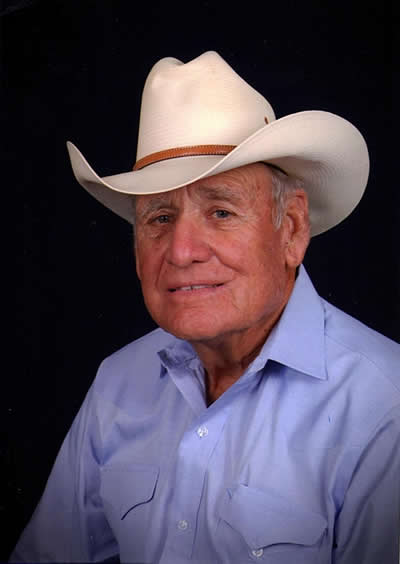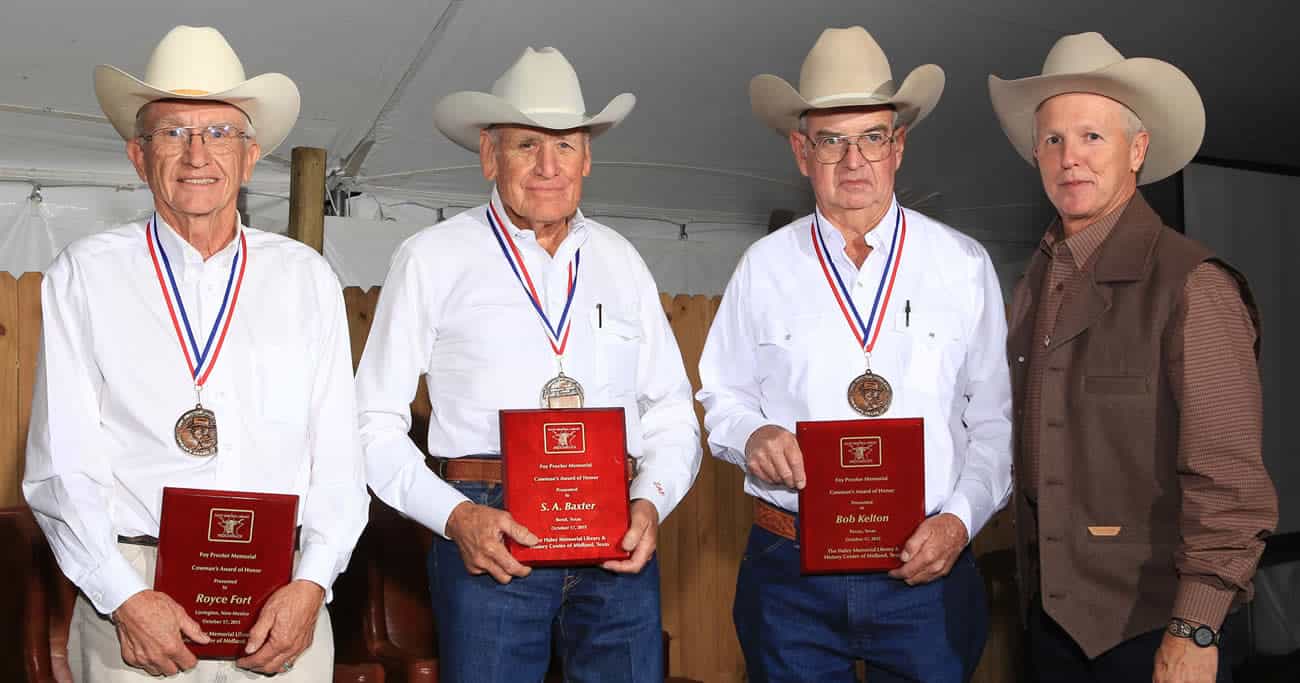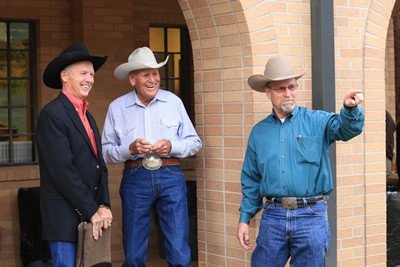S. A. Baxter is a sixth generation rancher born in 1931 on the family ranch in San Saba and Lampasas Counties, Texas. S. A. is the youngest of three children, his two sisters are deceased. His first cow trade was acquiring a milk pen heifer at the age of 4. Eighty years later his Baxter Ranch crew is still working cattle on horseback. Mr. Baxter attended John Tarleton Agricultural College in Stephenville, Texas and served in the U. S. Army during the Korean War from 1952 to 1954. Mr. Baxter married Kathy and together they have three sons, Randy and wife Donna, Stephen and wife Sally and Beau and wife Penny. All three sons have their own cattle and are working partners. Over the years he has expanded his ranching operations over several counties. The Baxter’s have six grandchildren.
Mr. Baxter started his quarter horse operation in 1958 with his first Quarter Horse purchase from a Pinehurst Stables sale. That animal, Paul Bee, began the Baxter line of Quarter Horses that would include in 1978 Tiempo Scooter, and later a King P-234 mare from the Hankins Bros., and now a Gay Bar King- bred stallion he bought as a weanling and raised on the ranch. Baxter Ranch horses were registered with the AQHA every year between 1960 and 2010. In 1960 Baxter was one of the founding directors of the Central Texas Cutting Horse Association. He served as President of the organization from its creation through 1972. He also served as President of the Alamo Quarter Horse Breeders Association for five years. Mr. Baxter says, “I have always liked horses and cattle, and I have never had a real paying job. I worked on some of the other ranches growing up, and to raise and have a better ranch horse is all I wanted.” “Quarter Horses have always been good to me,” he said. “The best experience is seeing my family riding the horses raised and started on the ranch and working cattle here on the ranch. There is no better feeling than to ride a good, young horse that you raised and started, on a good spring day.” My wish for my grand-children is that they should have a trouble free life. My worst fear is drought, and not being able to carry on my life’s work and becoming immobile.



